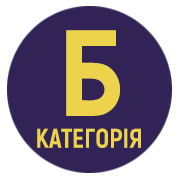INFORMATION COMPETENCE AS A BASIS FOR PROFESSIONAL DEVELOPMENT OF A MODERN TEACHER
DOI:
https://doi.org/10.32782/ped-uzhnu/2024-7-22Keywords:
competence, information competence, informatization, innovations, pedagogical components, educational processAbstract
The article analyzes the basic definitions of “competence” and “information competence”. It is noted that the modern world is changing rapidly, and with it the requirements for a teacher (educator). If earlier a teacher was a carrier of knowledge, today he or she is a facilitator of learning who helps students to acquire knowledge and skills in the information space on their own. It has been established that one of the key competencies necessary for the successful work of a teacher in such conditions is information competence. Information technology has become an integral part of the modern educational process, contributing to the development of the individual as an active participant in the information society, capable of creating new knowledge and effectively using it to solve various problems. The authors define the information competence of teachers as the ability to adapt scientific information to the specifics of the pedagogical process, formulate pedagogical problems and use various information and communication tools to solve them. The authors analyze the main components of the teacher’s information competence. The key pedagogical components are defined as a deep understanding of the pedagogical capabilities of information technologies, the ability to develop and use innovative teaching methods, the ability to create an information and educational environment, taking into account the qualitative level of the initial “input” information competence of the teacher’s personality, and others. As a result of scientific research, the requirements for a modern teacher in the context of the development of students’ information competence are analyzed, in particular, a thorough knowledge of information technology, the ability to integrate information technology into the educational process, the development of critical thinking skills in students, and the development of their digital skills.
References
Головань М. С. Інформатична компетентність як об’єкт педагогічного дослідження. URL: http://dspace. academy.sumy.ua/bitstream/123456789/603/1/Golovan_2007_UIPA_16.pdf
Колісник Н. В. Основні підходи до формування комунікативної компетентності на засадах принципу наступності. Науковий вісник Національного університету біоресурсів і природокористування України. Серія «Педагогіка. Психологія. Філософія». Вип. 199. 2014. Ч. 2. С. 152–158.
Овчарук О. В. Особливості запровадження компетентісного підходу: досвід України та країн Європи. Інформаційні технології в освіті, вип.4. 2009. С. 218–225.
Плужник О. В., Березанська І. М., Дрок П. В. Роль і значення інформаційної компетентності у становленні майбутнього фахівця професійної освіти. In The 2 nd International scientific and practical conference “Science and society: modern trends in a changing world” (January 22–24, 2024) MDPC Publishing, Vienna, Austria. 2024. 662 p.
Хатько А. В. Формування інформатичної компетентності майбутніх інженерів-педагогів комп’ютерного профілю: автореф. дис. … канд. пед. наук: 13.00.04 – теорія і методика професійної освіти; Бердянський держ. пед. ун-т. Бердянськ. 2012, 20 с.
Чичук, А., Гончарук, В., Кваснюк, В. Розвиток інформаційної компетентності фахівців в освітньому середовищі. Наукові записки. вип.3. 2024,
Quality education and competencies for life. Workshop 3. Background Paper. 2004. P. 6.







